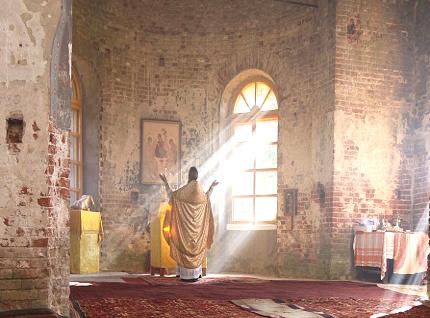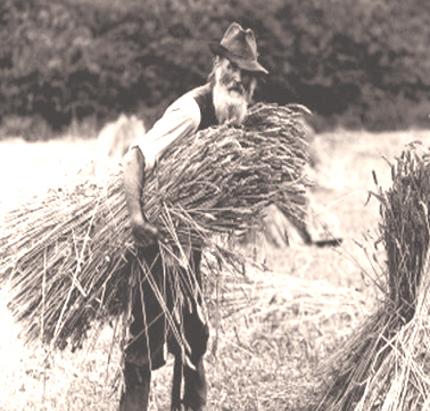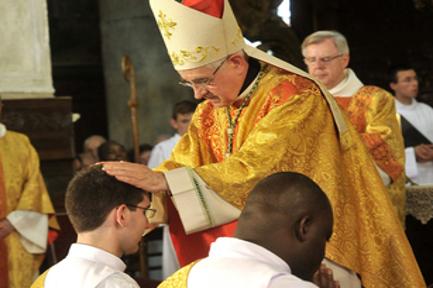The subject is still ways of getting into heaven and Scripture refers to the biblical statement that "Many are called but few are chosen." That gets the dreamer worried.
"I trembled with terror at the text she had spoken.
My mind was in a maze, and I mused secretly
Whether I was chosen or not chosen."
He reassures himself with the fact that he was baptised and was thereby given to God in a manner that can never be undone. Provided the baptised sinner truly repents, he is going to be alright. Langland makes a comparison with the fact that a churl and his belongings are owned by his lord and therefore the churl can't give something away.
Scripture goes along with that, saying that all the books support the view, apparently ignoring the requirement for a good life that she previously demanded. Discussion turns to the issue of "the righteous heathen" which be-devilled thinkers in those times. The Emperor Trajan pops up to say "Books are not everything. Look at my case." The legend says that Trajan was revered as a righteous judge and that he got into heaven through the prayers of Pope Gregory. Trajan says;
"...all the clergy under Christ could not snatch me from
hell."
But Gregory saw Trajan's true quality and fixed things on his behalf.
"Thus loyal love and living in truth
hauled out of hell an heathen Roman!
Blessed be Truth that so broke hell's portals,
And saved the Saracen from Satan's power
Which all the laws of learning were listless to accomplish!"
Langland's use of the word Truth seems to reflect his belief that it is a power that lies behind the deity of any particular religion and speaks through them all. The attitude Langland has to baptism is unclear. It is not enough on it's own to get a person into heaven and the Trajan story suggests that it is not always essential. But he recognises it's importance and he has passages later on which refer to the duties of God-parents.
After he passage about Trajan, Langland re-visits some of his favourite themes, like he supremacy of love, the inadequacy of law, good examples drawn from poverty and the numerous sins of religious professionals. The rich are deemed less loving than the poor, being too much concerned with possessions and privileges. In dealing with the clergy he has some delightful lines that mix practical criticism with personal apology.
"The bishop shall be blamed before God, I believe,
that names as God's knights those that cannot properly
Sing or read Psalms or say a Mass of the day.
But neither shall be blameless, the bishop or the chaplain
For each is an offender and the charge is Ignorance".
.....But complaining of priests interrupted my plaudit
For poverty with patience which I praise more than
wealth."
Langland objects to the fact that priests often said religious offices for very unchristian people and got some extra cash for doing so.
"So priests would be wise not to pocket a penny
For Masses or Matins, for meals or for clothes
From usurers, though crying and quaking with cold."
There are different original manuscripts of Piers Plowman and all have been translated in different ways. At this point there is a long passage about nature which is not always included. It occupies the next page .
To get back to the beginning click HOME. To see the inserted passage and link up again, click on REBUKED.
BAPTISED

POPE GREGORY PRAYING TROJAN OUT OF HELL

POOR MAN LIKELY TO BE RICH IN HEAVEN

IGNORANT ORDAINING IGNORANT
